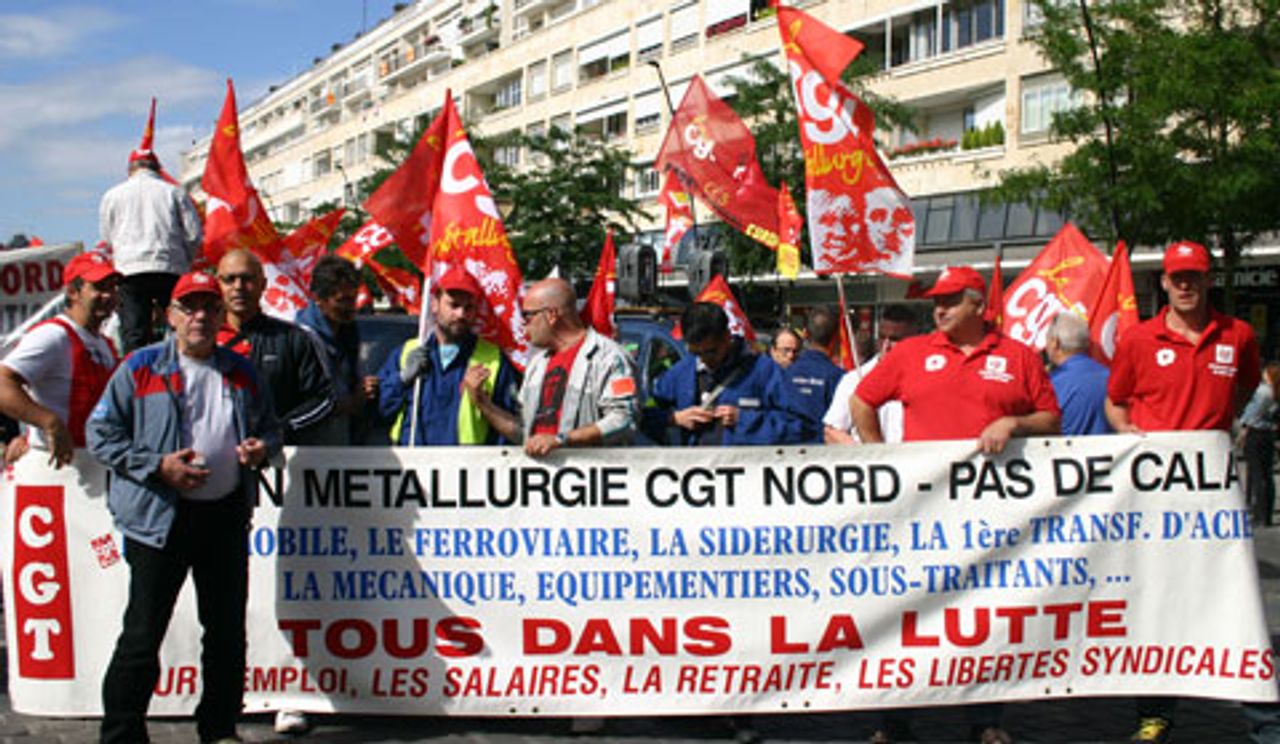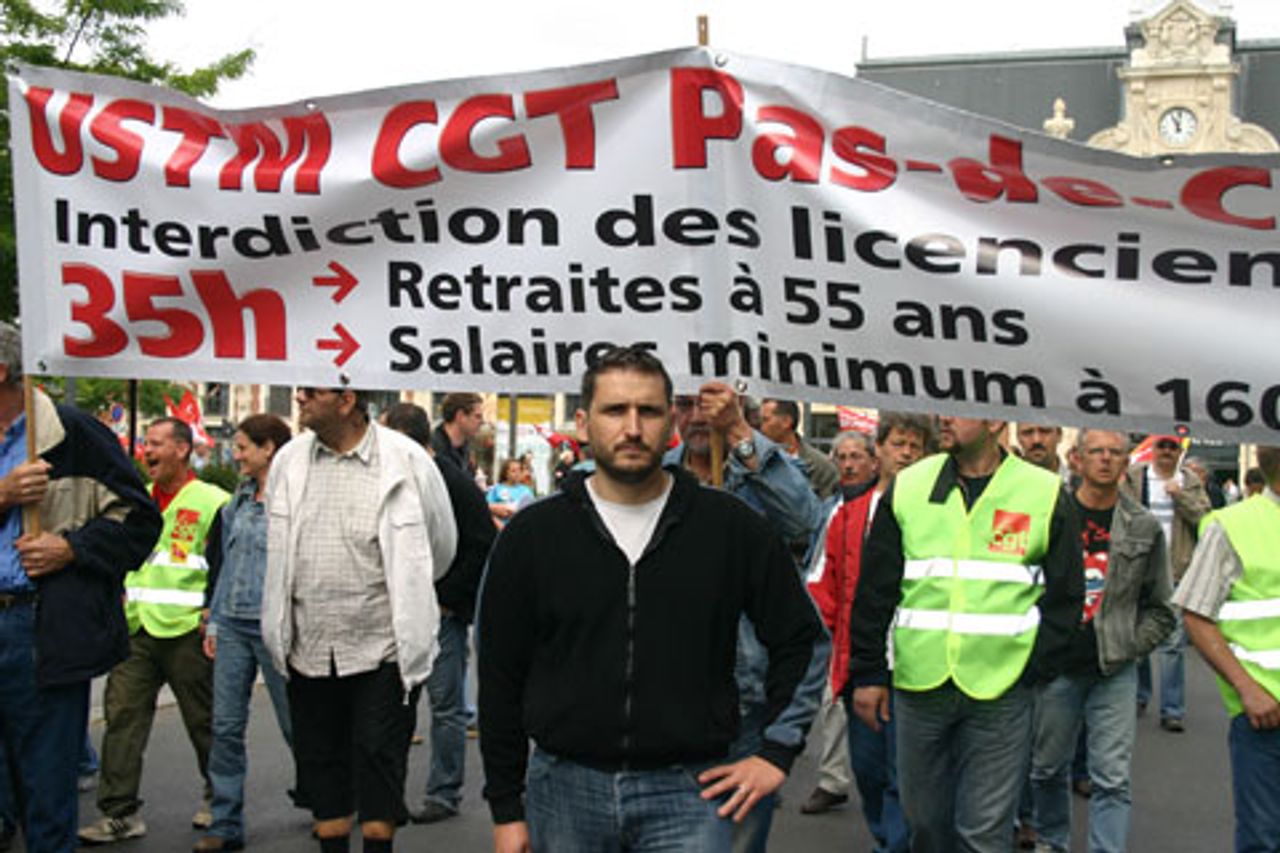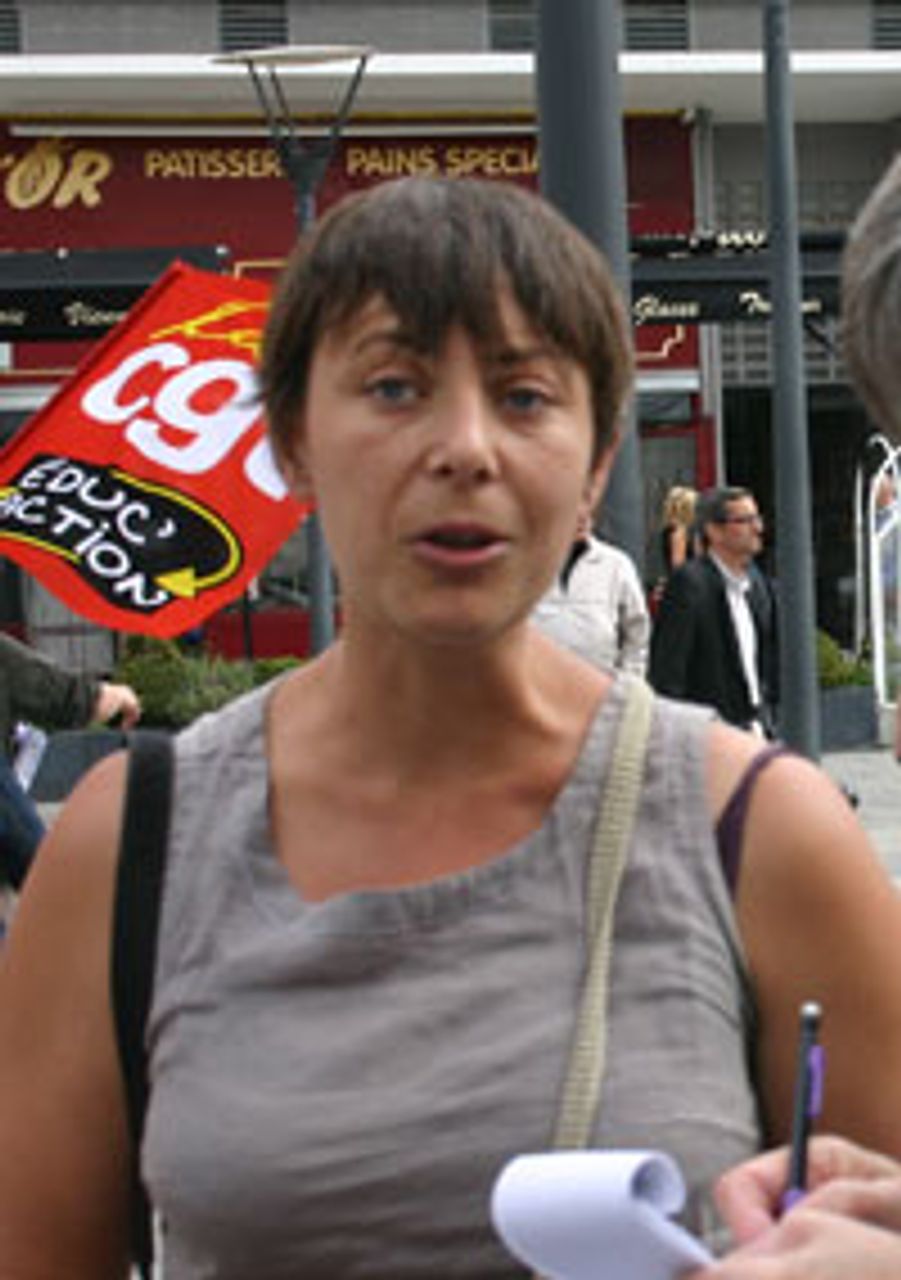 Workers demonstrate at the plant
Workers demonstrate at the plantWorkers at the PSA Citroën-Peugeot car factory, Sevelnord, in Hordain in the Nord-Pas de Calais region of northern France, struck for one day on July 7 as 1,200 people demonstrated in Valenciennes against the planned closure of the plant in 2015.
Leaked internal documents have revealed that PSA intends to close three of its plants. This will involve the loss of 2,800 jobs at the jointly owned PSA/Fiat Sevelnord plant and 3,600 jobs at the Aulnay-sous-Bois factory in the working class Seine-Saint-Denis department north of Paris. The plan considers a possible retention of Sevelnord if there is sufficient state funding. The third is a Peugeot factory in Madrid employing 3,100 workers.
According to the Médiapart web site, which has access to the documents, these closures are part of the strategy of Philippe Varin, appointed head of PSA in June 2009, to face “untrammelled global competition, where French workers are frontally pitted against Indian, Slovak or Turkish workers.” Varin’s objective is to make PSA a global player “with the lowest possible production costs so as to resist competition through the ‘compacting’ of the factories and a workforce adapted to this.”
The trade unions calculate that the closure of Sevelnord will not only eliminate the 2,800 jobs at the plant, but also another 10,000 jobs at regional parts suppliers and subcontracting companies. Already, from 2008 the region’s motor industry workforce declined from 58,000 in 2008 to under 50,000 in 2010 and is set to decline by another 20 to 25 percent.
The nearby Renault car plant at Douai is due to reduce its workforce from 5,500 to 4,000. Over the last 50 years the region has seen the closure of the coal mining industry. It still bears the trauma of the loss of 7,000 jobs in the steel industry with the running down of an Usinor plant in the late 1970s and early 1980s.
At Thursday’s demonstrations there were delegations from several local plants, many part of the motor industry such as Renault Douai, Faurecai, Toyota, Thyssen Krupp, Mercedes and Lisi Automotive. They were joined by a delegation of 10 workers from Aulnay who told the WSWS that the unions at their factory had only called a token one-hour stoppage that day.
Dominated by the CGT (General Confederation of Labour), close to the Stalinist French Communist Party (PCF), the mood of the march was somewhat grim. The tone was set by the lead CGT banner of the Sevelnord contingent, which read: “Usinor yesterday, Sevelnord today. One direct job loss equals four indirect jobs lost.”
The local PCF youth section was handing out leaflets reflecting the economic nationalism of the Stalinists, opposing production “abroad where the workers are paid a handful of pebbles,” and declaring that “With the pretext of foreign competition, the big bosses are destroying our economy, because we are forced to buy from abroad.”
The conception that the upsurge of class struggles in China and the Maghreb could lead to a joint struggle against plant closures and low wages together with their class brothers and sisters in Europe and the United States did not appear in these Stalinist leaflets.
The lie that one can defend jobs by assuring the bosses that they can make the highest profits by exploiting the local workforce is part of the subservience of the CGT and its political allies to the French bourgeoisie. Only by breaking from these pro-capitalist organisations and building independent organisations of the working class, waging a struggle on an internationalist and socialist perspective, can workers defend their jobs, workplaces and social rights.
Comments by workers on the march reflected the growing disaffection in the working class with the union bureaucracy and their political allies, the nationalist perspective, and the string of defeats they have overseen in Europe and internationally.
Workers agreed that the savage austerity measures imposed by the banks in Greece, with the active collaboration of the social democratic government of George Papandreou involving wage cuts of 30 percent, threatened workers in France as well.
The WSWS interviewed Jean-Noël, a member of the PCF youth movement, studying bodywork and hoping for a job in the motor industry when he graduates from high school next year. “With the present situation it will be difficult,” he said. He didn’t think that the day of action would solve anything and opposed any idea that jobs should be sold for severance pay as the CGT had done at the Continental tyre factory at Clairoix. “We should fight to stop all closures,” he said.
PCF members accompanying Jean-Noël objected when WSWS reports pointed out that the Greek Communist Party and its allied trade unions had limited the fight against social cuts to a few ineffectual one-day strikes with no political perspective, thus helping keep Papandreou in power.
 Patrick
PatrickPatrick from the Lisi Automotive plant, which makes bolts for the car industry, said he would not be immediately affected by the Sevelnord closure, but “if all the big firms go it will be disastrous. The bosses just treat us as if we were tools.” He said he was completely opposed to workers from different countries being pitted against each other.
He added, “Everything should not be based on the nation, that’s falling into the trap of the National Front [the neo-fascist party in France]. What we need is a world minimum wage. The unions should make this an all-European struggle. I recognise that Bernard Thibault [the CGT leader] has compromised. … It’s true, there are no banners in support of the Greek and Spanish workers. There should be. The shareholders and banks run everything. It must be an international struggle.”
 Daisy
DaisyDaisy, unemployed for a year after six years’ employment as a social worker, said: “If it’s just demonstrations, we can’t win. We have to block the economy, not let the unions stop it like they did with the refineries in 2010. It’s true, the CGT did collaborate with the police to force strikers back to work just when the economy was becoming blocked. The struggle was broken by the union leaders, not the rank-and-file.”
To the reply that the unions were not an instrument of struggle for the working class, and that it was necessary to build new class struggle organisations independent of the unions and the ex-“lefts”, she said: “We have to overthrow the government, not just in France. People idealise Chavez in Venezuela, but nothing has really changed there. We’re going to have to dismantle everything in order to build. It’s Usinor in 1979 all over again. That affects me. Many in my family lost their jobs and had to move away.”
